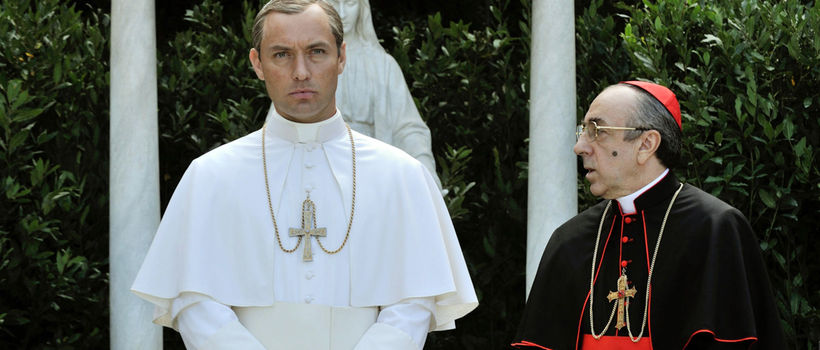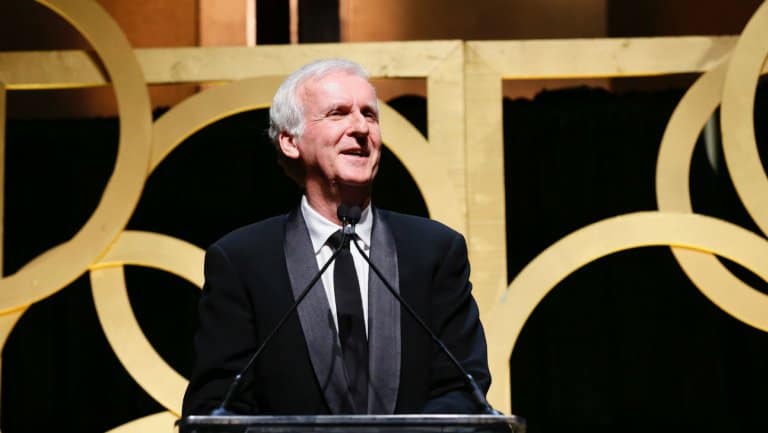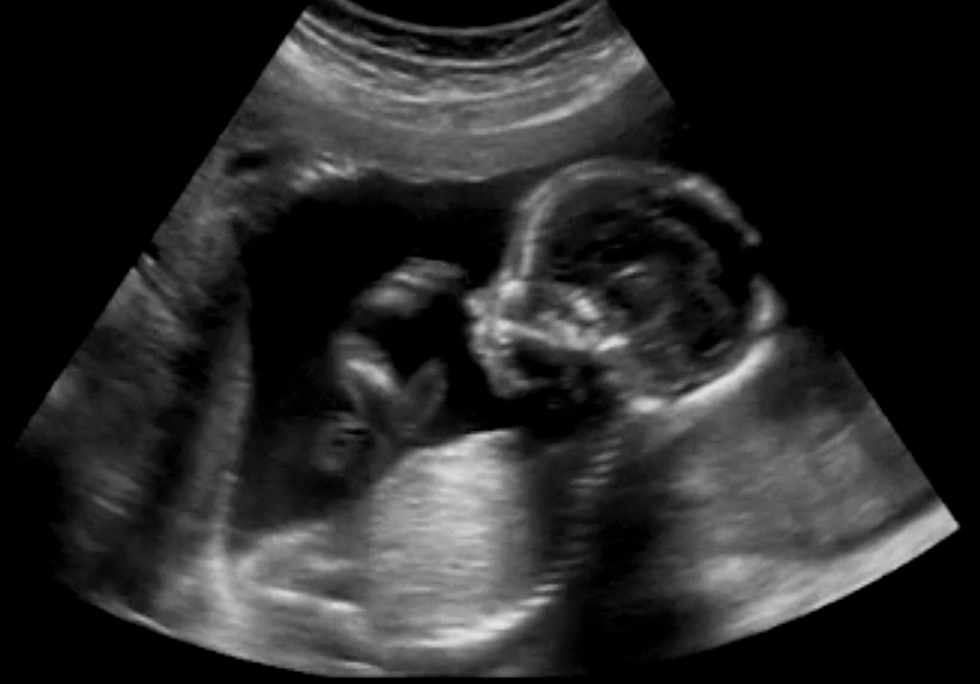
HBO’s ‘The Young Pope’ Presents A New, Contradictory Take On The Catholic Church
The opening moments of HBO’s new 10-part series, The Young Pope, almost seem purposeful in their antagonism toward traditional Catholicism. In this elaborate, visually striking sequence, Lenny Belardo (played by Jude Law) crawls from under a pile of sleeping babies, wakes up from this dream, gets dressed, goes out to address his papacy saying—as he later puts it—outrageous things to the crowd, then gets excommunicated, only to wake up and realize this is yet another dream.
Writer and director Paolo Sorrentino (The Great Beauty) composes these artful scenes in an effort to shed immediate light on the subconscious of this young, newly selected Pope, with cuts to a young Lenny staring a topless woman, a mundane water cooler appearing in the middle of the room, cardinals positioned as wide-eyed dolls and an evil grin crossing the young pope’s face as the title credits appear.
This is all a misdirection, however, from the true content of the show’s first episode, and in some ways, the character of Lenny Belardo himself. While his subconscious seems to paint him a reckless heretic, he later turns out to be more contradictory and scheming on the surface. His very selection by the Cardinals is a mystery as the series begins, with said religious men debating the choice and questioning if he can be manipulated to their ends.
It’s not far off to say that The Young Pope is essentially House of Cards set in Vatican City, as its main focus seems to be shedding a light on unsavory machinations that most people, let alone Catholics, are aware of. In the same way that House of Cards won’t make you a believer in politics, The Young Pope likely won’t make you a believer in Catholicism.
The real question, then, is whether or not The Young Pope is of any substance, aside from Sorrentino’s masterful visual touch and production value. At the very least, Lenny Belardo is a fascinating character study, demanding to be better understood in his unpredictability.
Belardo is the first American pope (Law himself is a British actor), and he became an orphan at a very young age. We don’t know how he went from being raised by Sister Mary—played in the present by Diane Keaton as his closest confidante—to the most regarded Catholic in the world—One who doesn’t know his way around the Vatican, for example, bumping into a tour group by accident in one humorous scene. But it’s clear that the show is interested in presenting a well-rounded, intriguing character to answer that question.
Like the real-life Pope Benedict, Belardo smokes, and like the grinning cardinals all around him, he schemes and employs subtle espionage, though his true agenda, and faith, is mostly unclear. He doesn’t like making friends, he hardly eats, he makes a nun cry for being nice to him, and he enjoys a position of authority over others. In plainer words, he’s extremely unlikable, even for a character who will undoubtedly strike a negative chord with devout Catholics.
For that reason, The Young Pope seems targeted toward those who know of the Catholic traditions, but don’t necessarily follow them or take them as seriously as they might have when they were younger. It’s also a fascinating perspective of the church that Protestants might find some insight in exploring, though they have to also sift through some incendiary content in order to get to it.
Still, this is a show about a lot more than a simple rhetorical question: What if the pope was young? For one thing, history has had far younger men become pope, and Belardo’s age seems to be a smokescreen more than a defining characteristic. This is seen clearly in how he verbally spars with Voiello, played by Silvio Orlando, and described by other Cardinals as the devil incarnate. Underneath Voiello’s pleasant smile is a man who is clearly aiming to control this young Pope, whom he’s severely underestimated.
It might seem easy to dismiss The Young Pope for being a story that takes aim at religious institutions. In some ways, that’s accurate, at least in the sense that you’re free to make your own conclusions on the Catholic Church after viewing this, and future episodes will likely strengthen those opinions. But the people at the center of the show are not raving or outlandish villains, written to make belief in God look bad or silly. In fact, it’s probably more true to say that the show presents them as men of high intelligence and very little faith, unraveling how that might affect the people in the church who do believe in God.
If you’re seeking entertainment that is edifying and intentional in its pursuit toward better understanding God, then The Young Pope won’t get you very far. And that’s probably the point.






















